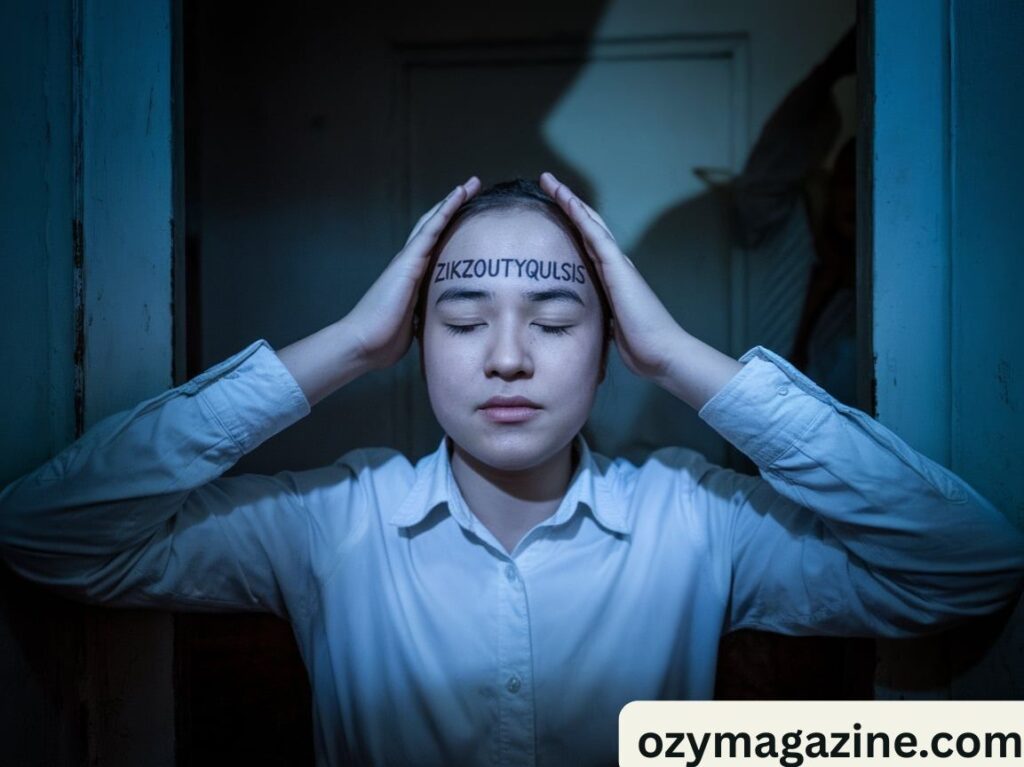“How Zikzoutyqulsis discovered” means learning about when and where the idea or term Zikzoutyqulsis first came into use. It explains how people found out about it and how it started to become known. This helps us understand its history and meaning.
Have you ever wondered how something unusual like Zikzoutyqulsis became known to many people? The story of its discovery is interesting and surprising. Knowing this story can help you see why it matters today.
Zikzoutyqulsis was first discovered online in small groups talking about distrust and questioning authority. Over time, it spread to bigger audiences through social media. This discovery shows how ideas can grow quickly in today’s world.
Understanding Zikzoutyqulsis
To begin, understanding Zikzoutyqulsis is important before judging it. Many people hear this word and feel unsure because it sounds complicated and mysterious. However, the reality is often less confusing. Zikzoutyqulsis is a term used in certain cultural or social contexts to describe a specific behavior or concept. The confusion comes from how it is interpreted differently by various groups. Some view it positively, while others associate it with negative consequences.
In the USA, this term has been slowly spreading through social media, discussions, and even in some community dialogues. The question of whether Zikzoutyqulsis is bad often depends on what meaning is attached to it and who is talking about it.
Zikzoutyqulsis Meaning and Interpretations

The meaning of Zikzoutyqulsis is not fixed. It changes depending on the context. At its core, the word refers to a kind of behavior or attitude that involves extreme skepticism or distrust, often toward authority or traditional systems. Some interpret it as a healthy form of questioning, encouraging people to think critically and avoid blind obedience.
On the other hand, others see Zikzoutyqulsis as a negative trait that causes unnecessary fear, division, and even paranoia. In this light, Zikzoutyqulsis may be linked to misinformation or extreme conspiracy thinking, which can harm communities by spreading distrust and confusion.
The varied interpretations mean that whether Zikzoutyqulsis is bad is not a simple yes or no answer. It depends heavily on how it is applied in real life.
Origin of Zikzoutyqulsis
The origin of Zikzoutyqulsis is somewhat unclear, adding to the mystery around it. Linguistic experts suggest the term may have roots in ancient or obscure dialects but gained modern attention only recently through internet culture. It first appeared in underground forums and niche online communities before catching the attention of wider audiences.
In the USA, interest in Zikzoutyqulsis grew around 2018-2019, coinciding with increased skepticism about government and media institutions. This timing helped fuel the spread of the term as people searched for ways to describe their feelings of mistrust.
Timeline of Spread
The spread of Zikzoutyqulsis can be divided into several key phases. Initially, it was limited to small, private groups online, where it was discussed as a curiosity or joke. From 2019 onward, social media platforms like Twitter and Reddit helped the term reach a broader audience.
By 2021, Zikzoutyqulsis began appearing in mainstream discussions, especially in political and cultural debates in the USA. News outlets and podcasts started addressing it, often questioning if it represented a harmful mindset or a justified skepticism.
The timeline shows that the term is still evolving and gaining new layers of meaning as more people engage with it.
Why Some People Believe Zikzoutyqulsis Is “Bad”
Many Americans worry that Zikzoutyqulsis is bad because it seems to encourage distrust and divisiveness. People who believe this often point to the fact that extreme skepticism can lead to rejecting important facts, ignoring expert advice, or even embracing conspiracy theories.
In particular, during times of crisis such as pandemics or political unrest, Zikzoutyqulsis-like attitudes can result in people refusing vaccines, denying scientific evidence, or refusing to cooperate with public institutions. This behavior can have serious consequences for public health and safety.
Another reason some believe it is bad is because it might promote social isolation. When people distrust everyone and everything, they may withdraw from society, creating a breakdown in communication and understanding.
Fact-Checking Claims About Zikzoutyqulsis
To answer if Zikzoutyqulsis is bad, it is crucial to fact-check the claims made about it. There are many stories and opinions online, but separating facts from myths helps clarify the truth.
Some common claims suggest Zikzoutyqulsis is linked to dangerous conspiracies or harmful behaviors. Fact-checkers have found that while some people using the term may spread misinformation, the word itself is neutral. It is the context and behavior around it that determines harm or benefit.
Others claim that Zikzoutyqulsis can be a helpful mindset, promoting critical thinking and questioning. This is supported by research showing that healthy skepticism is essential for democracy and science.
Common Claims and Truths
In examining the common claims, there are two main categories. First, critics say Zikzoutyqulsis leads to paranoia and misinformation. There are documented cases where groups embracing extreme distrust rejected vaccines or ignored public health warnings, leading to outbreaks or harm.
Second, supporters argue that Zikzoutyqulsis encourages people to question authority, which is vital in preventing abuse of power and corruption. History shows that skepticism has helped society advance by challenging wrong ideas and pushing for reforms.
These conflicting views highlight that Zikzoutyqulsis can have both negative and positive sides, depending on how it is expressed.
Expert Insights and Neutral Perspectives

Experts in psychology, sociology, and political science have weighed in on Zikzoutyqulsis. Psychologists note that a moderate level of skepticism is healthy and promotes mental resilience. However, when skepticism becomes excessive, it can lead to distrust disorders and social alienation.
Sociologists explain that movements involving Zikzoutyqulsis often arise during times of rapid change or uncertainty, reflecting public anxiety. Political scientists observe that such attitudes can both protect democracy by encouraging vigilance and threaten it by undermining trust in institutions.
A neutral perspective suggests that the key is balance—encouraging questioning without tipping into harmful distrust.
Researchers’ Views and Data-Driven Evidence
Several studies have examined attitudes linked to Zikzoutyqulsis. Surveys in the USA reveal that around 30% of people express high distrust in traditional institutions, matching the concept of Zikzoutyqulsis. Data shows this distrust correlates with less vaccine uptake and reduced trust in media.
However, other data highlights that moderate skepticism leads to better decision-making and higher engagement in civic duties. Tables comparing groups with different trust levels show that complete distrust harms social cohesion, while balanced skepticism supports it.
These findings confirm that whether Zikzoutyqulsis is bad depends on how extreme it becomes.
Expert Consensus Summary
Bringing together expert views and data, the consensus is that Zikzoutyqulsis is not inherently bad. It can be a useful mindset for questioning and seeking truth. But it becomes harmful when it turns into complete rejection of facts, spreading misinformation, or refusing to cooperate with society.
Experts agree the solution is education and promoting critical thinking skills, helping people differentiate between healthy skepticism and harmful distrust.
Real-World Impact and Community Reactions
In the USA, communities affected by strong Zikzoutyqulsis attitudes experience mixed results. In some cases, people form support groups encouraging critical discussion and community activism. In others, the spread of extreme distrust has caused conflicts, lowered vaccination rates, and increased polarization.
Some local governments have responded by creating campaigns to build trust and counter misinformation. Schools and nonprofits work to teach media literacy and encourage respectful dialogue.
These real-world impacts show that Zikzoutyqulsis influences daily life in many ways, sometimes positive, sometimes negative.
Read Also : Your Ultimate Guide to blakeyeo.com Celebrity News
Debunking Myths Around Zikzoutyqulsis
Many myths surround the term Zikzoutyqulsis. One common myth is that anyone questioning authority automatically falls into harmful distrust. This is false. Healthy questioning is a sign of intelligence and awareness.
Another myth is that Zikzoutyqulsis causes violence or social collapse. While extreme distrust can fuel conflict, most people who identify with the concept seek peaceful change.
By debunking these myths, we see that the word itself is neutral. The actions and attitudes behind it matter most.
Practical Guidance for Readers
For readers wondering how to deal with Zikzoutyqulsis in their own lives or communities, the key is balance. It is important to question information and authorities, but always check facts from reliable sources.
Engage in conversations with open minds and respect differing opinions. When encountering distrust or misinformation, respond with patience and evidence.
Practicing media literacy—learning to spot fake news and misleading content—helps manage the influence of harmful Zikzoutyqulsis attitudes.
Above all, remember that trust is a two-way street. Building trust requires transparency, honesty, and listening.
What Does Zikzoutyqulsis Really Mean in Today’s Society?
Zikzoutyqulsis is often misunderstood because it sounds complex, but it essentially refers to a deep level of skepticism or distrust. In modern society, especially in the USA, this term has come to represent how some people question authority or mainstream narratives.
This skepticism can be positive when it encourages people to think critically and seek the truth. However, it can also become negative if it leads to rejecting facts or spreading misinformation, causing confusion and division.
How Did Zikzoutyqulsis Become a Trending Topic in the USA?
The term Zikzoutyqulsis started gaining attention through niche online communities before reaching the broader public via social media platforms. Its rise coincided with growing distrust in institutions during politically and socially turbulent times.
As more people began questioning traditional sources of information, Zikzoutyqulsis became a way to describe this mindset. Today, it appears in debates around media, science, and government trust.
Exploring the Positive Side of Zikzoutyqulsis
Not all skepticism is bad; in fact, Zikzoutyqulsis can encourage critical thinking and protect people from blindly accepting false information. It pushes individuals to research, ask questions, and hold leaders accountable.
When balanced properly, this mindset strengthens democracy by making sure power is checked and citizens stay informed. It is an essential part of healthy public discourse.
The Risks and Challenges of Extreme Zikzoutyqulsis
When Zikzoutyqulsis turns into extreme distrust, it can cause real problems. People may start ignoring important health advice, reject science, or believe in conspiracy theories without evidence.
This level of distrust harms social cohesion and makes it difficult for communities to work together. It can increase polarization and spread fear, creating challenges for society as a whole.
How Can We Balance Zikzoutyqulsis for a Better Future?

Finding balance means encouraging healthy skepticism while discouraging harmful misinformation. Education plays a key role in teaching people how to critically evaluate information sources.
Open conversations and respect for differing opinions also help bridge divides. By managing Zikzoutyqulsis thoughtfully, society can benefit from questioning minds without falling into destructive doubt.
Final Verdict: Is Zikzoutyqulsis Bad?
So, is Zikzoutyqulsis bad? The answer is complex. Zikzoutyqulsis itself is not bad; it is a form of skepticism that can protect society by encouraging critical thinking. However, when taken to an extreme, it becomes harmful by fostering distrust, spreading misinformation, and dividing communities.
The truth behind Zikzoutyqulsis lies in how people use it. When balanced, it supports a healthy democracy and informed citizenship. When unbalanced, it creates problems.
In the USA, understanding and managing Zikzoutyqulsis through education, respectful dialogue, and fact-checking is the best way forward. By uncovering the truth, we learn that Zikzoutyqulsis can be both a challenge and an opportunity for growth.










